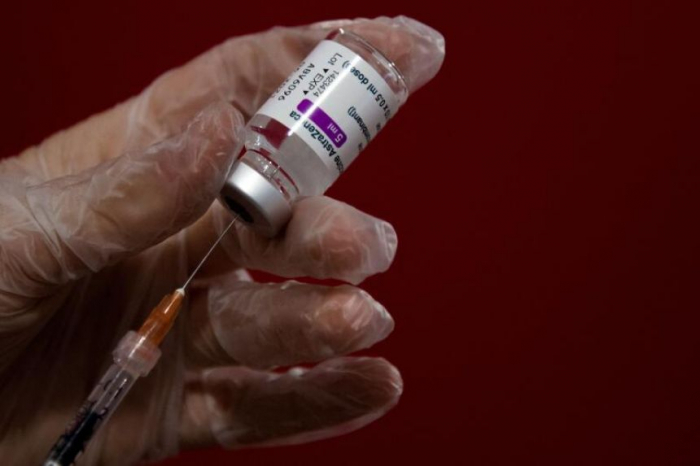European Medicines Agency Executive Director Emer Cooke announced on Wednesday that there is "no evidence" that supports restricting the use of AstraZeneca's COVID-19 vaccine in any population. Germany recently suspended using the drug over concerns of rare blood clots in recipients of the shot.
Cooke added that her Amsterdam-based agency continues to study reports of new cases as they come in and will provide a further assessment next week.
On Tuesday, an independent vaccine expert panel in Germany said AstraZeneca shots should not routinely be given to people under 60 because of a rise in reported cases of unusual blood clots in the days after vaccination.
The German government followed the recommendation and said the British-Swedish company's vaccine would be prioritized for people age 60 and older, although exceptions can be made in consultation with doctors.
The move put the spotlight back on the European Medicines Agency, which authorized the AstraZeneca vaccine in January and said earlier this month – after some European countries suspended its use over blood clot fears – that the vaccine's benefits outweigh the risks.
“According to the current scientific knowledge, there is no evidence that would support restricting the use of this vaccine in any population," Cooke told reporters.
She said the agency's assessment was based on 62 cases of unusual blood clots, including 14 deaths, worldwide reported to EMA by March 22. Those figures included a “significant” number of the cases reported from Germany, but not all, she said.
German regulators said they had received 31 reports of rare blood clots in the head in recipients of the AstraZeneca vaccine and nine deaths up to March 29, roughly doubling the number that had been reported in the country by March 22.
Cooke said the EMA will include the Germany cases in its review "and they will be they will form part of the ongoing evaluation that the committee is undertaking, as will any additional cases that are reported from other countries and regions.”
Based on the numbers reported to the agency so far, there have been 4.8 cases of the rare blood clots per million doses of the AstraZeneca vaccine administered, she said.
“For the BioNTech vaccine, based on the same criteria, it was 0.2 cases per million,” Cooke added, referring to the shot a German biotechnology company developed with U.S. pharmaceutical giant Pfizer. "And for the Moderna vaccine based on the same criteria, zero cases per million. But that probably reflects that there’s a lot less use of Moderna at the moment in Europe.”
She said the EMA's experts so far had not determined any underlying risk factors for the blood clots or established a causal relationship to the AstraZeneca vaccine.
“The link is possible, and we cannot say any more than that at this point,” Cooke said.
More about: #AstraZeneca
















































